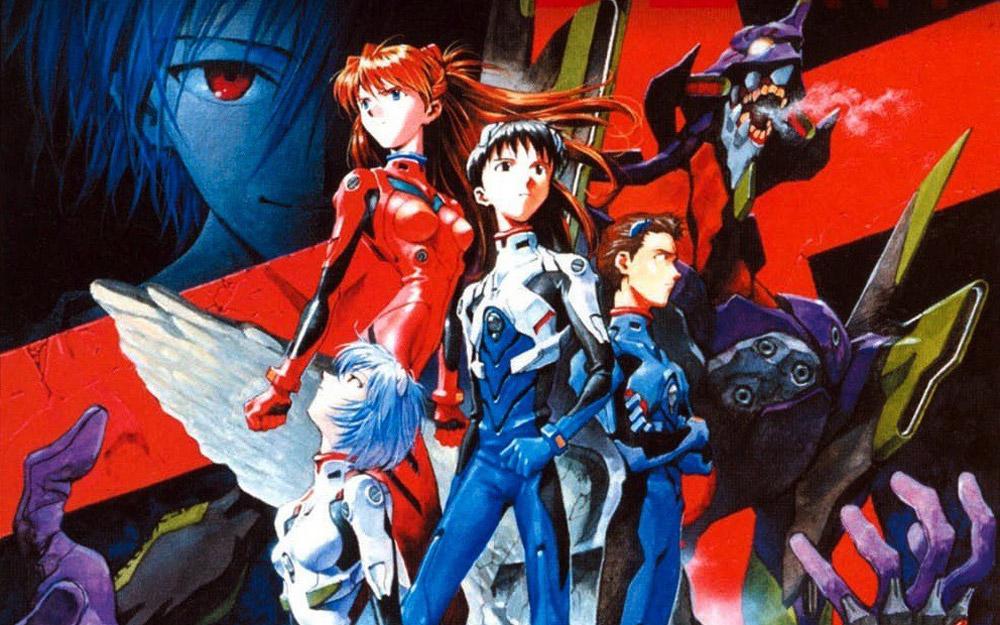Neon Genesis Evangelion: Death & Rebirth by Hideaki Anno (Review)

After the Evangelion series ended, many of its fan were left scratching their heads. Rather than end the series with a huge climactic battle, series creator Hideaki Anno decided to take a more introspective, metaphysical approach. Many fans protested the original ending, feeling that it left too many questions unresolved and unanswered. Although initially resistant, Anno’s response was to create End of Evangelion, a feature containing an alternate end to the series. But to prepare audiences for the new ending, Evangelion: Death & Rebirth was created.
As the title implies, there are two parts to this. The first, Death, is essentially a complete overview of the entire series, minus the last two episodes. New details are added, events that were originally hinted at are explored more fully, and new insights are given. But just as many questions are left unanswered, and in a series like Evangelion, that means a lot of mysteries still remain.
Given the series’ labyrinthine plot, full of character studies, conspiracies, metaphor, and oblique religious symbolism, it’s an understatment to call Death confusing. If you haven’t seen the series, don’t even bother watching it. This isn’t merely a digest version of the 24 episodes. My friend started watching it with me, and just gave up after about 10 – 15 minutes. I didn’t fare much better. New details are added that give some interesting insight into the series, especially some of the conspiracies that always worked behind the scenes, but you’ll have to do your research. And it’s delivered at such a lightning pace, with rapid, nonlinear editing and quick cuts, that it’s barely watchable at times.
But it’s nothing compared to Rebirth.
Rebirth is taste of things to come in End of Evangelion, and it’s a bitter one. It takes place immediately after the events of episode 24, before the series launched into a deep metaphysical deconstruction of its main character, Shinji Ikari. NERV has defeated the final Angel and stopped the Third Impact, the supposed destruction of Mankind. But those who control NERV from the shadows (a secret organization called SEELE) have grown wary of NERV’s commander, Gendo Ikari. Fearing the direction that he’s taken, and that he’ll use NERV’s ultimate weapons, the EVAs, against them, SEELE launches an allout attack on NERV HQ.
Meanwhile, Shinji, who is responsible for defeating the final Angel, has shut down. The stress and anguish of all that he’s gone through as an EVA pilot has left him an empty shell (and accounts for the tragic, disturbing scene that begins Rebirth). Shinji’s commander, Katsuragi, desperately tries to save him from the encroaching forces, who have orders to kill everyone in NERV, including the EVA pilots. But when she saves him, she finds that he doesn’t want to be saved.
Meanwhile, Asuka, Shinji’s rival, takes a stand against SEELE’s forces. An emotional breakthrough frees her from much of the guilt and sorrow she’s experienced (another plot point you’ll miss if you haven’t seen the series). But it comes just as SEELE unleashes their final weapon, their own army of EVA units. Asuka’s EVA is surrounded by SEELE’s EVAs as they descend from the sky to do battle. And then it ends.
Death & Rebirth is a shocking start to what promises to be a shocking conclusion to the series. It’s almost as if Anno is thumbing his nose at Evangelion’s fans, providing an action-packed ending that’s so brutal and intense it’s more trying than the original ending. The scenes of SEELE’s attack on NERV HQ, as they systematically execute soldiers and civilians, are quite raw, but still pale in comparison to the emotional turmoil that goes on. And it’s just going to get worse.
If you’re an Evangelion fan, you probably already own this, or it’s on the way. If you want to start getting into Evangelion, this is not, I repeat, not the place to start. The animation is incredible, the action a blast, and the melodrama so thick you can cut it with a knife, but you must see the series first. It’s the only way you’ll understand a fraction of what happens. As for me, I’m dying to see End of Evangelion.
